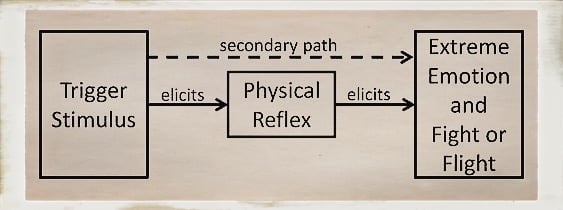Neurofeedback: A Sound Alternative for Misophonia Sufferers
 Autonomic brain functions are something most of us take for granted. Our brains are like complex computer servers, performing billions of functions to regulate breathing, heart rate and processing incoming information – all of it done completely unconsciously and in the background.
Autonomic brain functions are something most of us take for granted. Our brains are like complex computer servers, performing billions of functions to regulate breathing, heart rate and processing incoming information – all of it done completely unconsciously and in the background.
But for some, predictable involuntary brain function is NOT a given. The brain, for example, is supposed to regulate and interpret incoming auditory information. Without this normalizing function, sounds can literally overwhelm the nervous system – a condition known as misophonia. To this subset of the population, even the most innocuous auditory information -someone munching corn chips or clearing their throat; even the sound of dripping water- can come across literally like nails on a chalkboard. The resulting overload of the sensory system sends some misophonia sufferers into an uncontrollable rage and/or a primeval flight or flight response. Sounds don’t even have to be loud to trigger the painful, intense effects of Selective Sound Sensitivity Syndrome.
Living with misophonia is excruciating, but there is no known cure for a condition whose prevalence many affect as much as 10% of the general population.
Recently, the staff at NeurOptimal® received inquiries from misophonia sufferers desperately seeking relief from their paralyzing condition. They had come across the growing number of positive reports about neurofeedback providing successful outcomes for auditory processing disorders..
Inquiries quickly blossomed into NeurOptimal® users, which in turn have become inspiring success stories. Misophonia internet message boards are now humming with positive word of mouth about neurofeedback and brain training. This small, specialized community has undoubtedly seen their hopes dashed many times in the pursuit of anything that could make their lives more bearable. For many misophonia sufferers, it seems that brain training with a neurofeedback machine has proven very effective.
Misophonia sufferers’ positive experience is a testament to the protean nature of the NeurOptimal® neurofeedback system itself. Instead of attempting to pinpoint a part of the brain or secure a specific diagnosis, the NeurOptimal® system is specifically designed to help the brain find its own best solution – regardless of the issue. NeurOptimal® simply encourages the central nervous system to pull resources for self-correction.
Now, the only annoying sound heard by many misophonia sufferers is the fading out of soothing world music soundtrack that accompanies their NeurOptimal® neurofeedback session.

Leave a Reply
You must be logged in to post a comment.